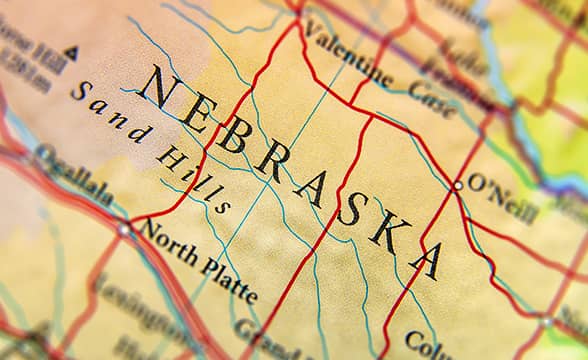Nebraska’s Racing and Gaming Commission has unveiled a new self-exclusion scheme for gamblers in the state. Players in the State can join the regulator’s new program to limit their access to games of chance.
Nebraska Introduces a Self-Exclusion Program
Players who sign up for the commission’s program will be able to willingly exclude themselves from all types of legal gaming in the Cornhusker State. In addition, the regulator’s portal will provide players with other tools and resources to help them manage their gaming behavior.
Gamblers who wish to exclude themselves from gambling can do so for a year, several years or for a lifetime. Excluded people will be denied entry to casinos in the state, thus protecting them from giving in to irresponsible spending.
The new initiative is in line with Nebraska’s goals of paving the way for safer gambling in the state. The first permanent casino in the Cornhusker State is expected to open this Saturday. It will be located at the Lincoln Race Course Thoroughbred racing track and will be armed with 400 slots. The self-exclusion scheme mirrors the safe practices of other states as it aims to protect people who wish to forgo gambling at all costs.
A Professional Industry Should Be Committed to Safer Gambling
Tom Sage, executive director for the Nebraska Racing and Gaming Commission, spoke about the new self-exclusion initiative. He noted that although many people are excited about the launch of Nebraska’s first casino, the commission realizes that there are many others who wish to stay away from the industry. According to Sage, each professional gambling ecosystem should be mindful of such people and introduce mechanisms that protect people from problem gambling.
Sage prompted all at-risk gamblers and their relatives to seek the self-exclusion program.
We encourage everyone to learn the signs of problem gambling and use the voluntary self-exclusion program if you or a loved one has an addiction.
Tom Sage, exec director, Nebraska Racing and Gaming Commission
Mike Sciandra, a worker at the Choices Treatment Center and a former addict, praised the new program. He noted that he has used self-exclusion programs in the past and is delighted to see one launch in Nebraska.
Sciandra noted that the new scheme will help many people bring order to their lives and help them resist the temptation of gambling. He admitted that some may find ways to cheat the self-exclusion program but even so, it is best to have mechanisms that protect most of the high-risk gamblers from having full access to games of chance.



